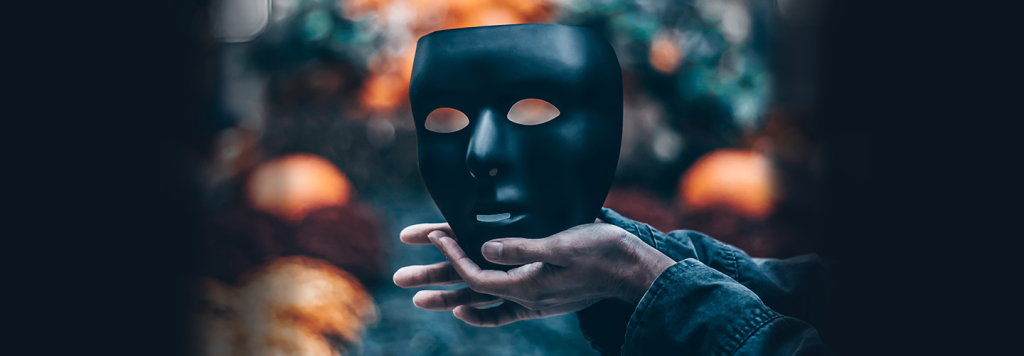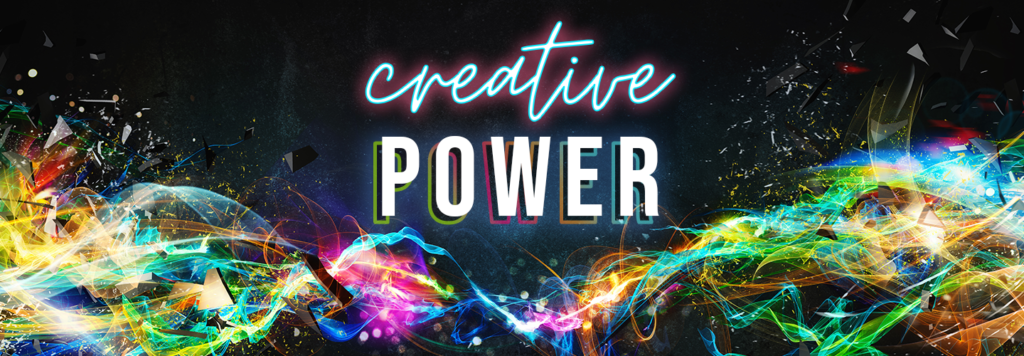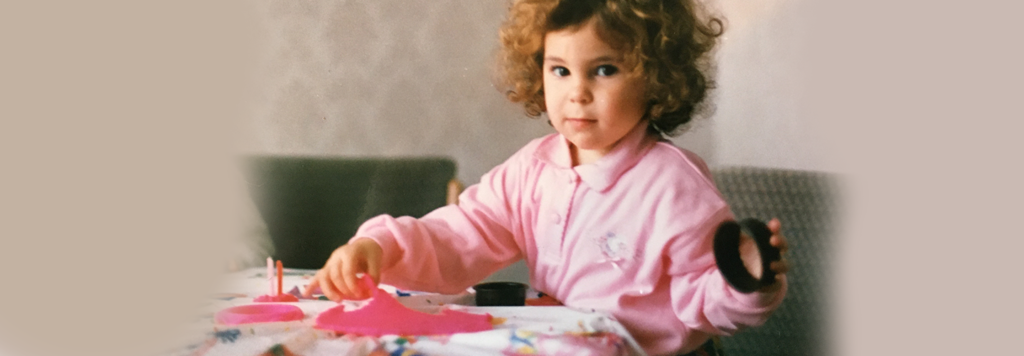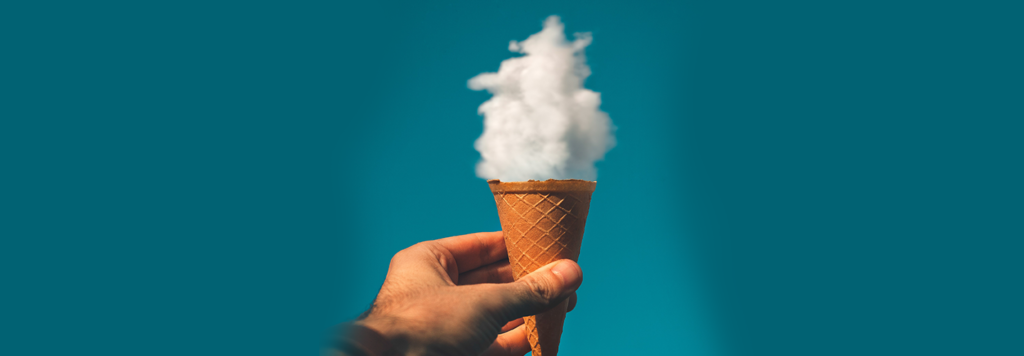Ever been really excited to work on a project and then find yourself completely paralysed when you sit down to get started? Or perhaps you’re in the process of being creative and your mind is flooded with thoughts and fears about why this isn’t going to work or isn’t a good idea? Fear and impostor syndrome can hit at any time during the creative process and derail you, stopping you in your tracks.
Join me in this episode as I explain how you are absolutely NOT crazy (yep, the fear is real!) In this episode I’ll be sharing some tips to help you combat the fear and help you get back into action.
To find out how to work with me visit www.camillafellasarnold.com/creativepower
For episode transcripts visit: https://camillafellasarnold.com/category/podcast/
PDF of how to hold your ESR points: https://geni.us/ESRhandoutEmilyTuck
Connect or work with holistic practitioner Emily Tuck to help you work on your subconscious self image: www.emilytuck.com
Transcript
Welcome to episode 8 of Creative Power. If you are someone that has set yourself a New Year’s resolution then first things first, I hope you’re still keeping at it and finding it easy to embed into your daily routine! And if you need a few tips to help you keep that consistent habit, skip back a couple of episodes and listen to episode 6 where I shared my top five tips for building a daily practice.
One thing that you might be feeling come up as a result of your New Year’s resolution though is impostor syndrome. Perhaps you’ve committed to this year being the year you write your book or build your business and put yourself right out there.
And then the fear pops up.
And a million different reasons start flooding your head about why you definitely shouldn’t do this. That my friend. is impostor syndrome and that’s what I’m going to talk to you about today.
You know that feeling when you get really excited about doing something? Maybe it’s a dream business idea or a plan to take up a new hobby and you’re absolutely buzzing! You feel raring to go, happy and full of confidence and momentum. It is all you can think about.
But after a little while, the excitement starts to wear off. You feel the doubt creeping in. Your thoughts turn to, ‘am I good enough?’ or ‘who am I to do this?’ You start talking yourself out of it before you’ve even really tried.
What you’re hearing is an internal monologue of criticism and rejection, often based on past experiences. They come from all sorts of places such as beliefs habits expectations and attitudes of those around you, it could come from the witch wound, persecution complex from this or other lives, being a creative outcast, cultural appropriation, DNA memories and epigenetics, collective trauma and judgements passed around being women, artists, black, indigenous or people of colour and more. I’ll be digging into these more in future episodes.
Ultimately fear is the ego’s way of keeping you safe by reminding you what happened last time. When in reality all it really does is make you feel rubbish. lose your enthusiasm and creative power and it stops you in your tracks. Because that’s where it’s safe for your ego, that’s what it knows. If you keep going out of your comfort zone, your ego, your brain doesn’t know what’s out there. Could be man-eating bears for all it knows.
You see, the brain and ego or the fight or flight response can’t tell the difference. They will act like starting a business and failing at it is the end of the world, that failing is going to cause you as much physical pain as cutting your arm off.
Because to be honest, lots of things we do now don’t relate to where these instincts originate from but our brains don’t know that. And our brains definitely don’t have a map for it so it makes us feel like writing a book and sharing it with the world is going to kill us because last time we were this scared, we were living in caves and being chased and eaten by bears.
Someone forgot to give our brain the memo that things are a bit – and by a bit I mean a lot – different now!
Because at the heart of it all, we want to be accepted. When you decide you’re going to do something that stretches you out of your comfort zone, your brain then panics because it’s hardwired to seek approval from others. Back in the days of cave people, going against everyone could get you kicked out of the tribe and left to fend for yourself.
And as a child back in those days relying on your parents or caregivers to fulfil your needs, upsetting them could mean they reject you and no longer care for you leading to your eventual death. No wonder we want to be accepted by everyone. Our brain still thinks that rejection could get us killed!
Not only that but when you really believe in something and you put your heart and soul into it, it is personal. Especially in creative pursuits such as writing or making art. Remember in episode 4 when I talked about meraki? We leave a little piece of ourselves in what we do so other people judging your efforts can feel like a direct judgement of you.
People say things every day that we can interpret in all sorts of ways and sometimes we interpret what they say as criticism or rejection regardless of how it was originally meant. At that moment it can feel impossible not to take the criticism personally. It feels like a personal attack, a rejection of yourself and who you are. And as soon as we start rejecting ourselves… hello impostor syndrome!
All of these little moments add up so that when we’re alone, our internal monologue will start using those comments and ideas to fuel our insecurities. We convince ourselves there’s truth in them and that we’ll be “found out” any minute. Cue more impostor syndrome.
The brain anticipates the emotional pain of rejection and criticism and this can stop you in your tracks or make you give up completely. It can make your mundane reality (much as you hate it!) look more attractive than taking a risk with no guarantee of a pay-off.
Every time we choose to stay in our comfort zone and not follow our dreams, a little piece of you dies inside. You know the lost souls from Disney Pixar’s 2020 film Soul? That’s what happens every time you turn away from something that lit a spark within you. And it sucks.
I know because I’ve been there myself plenty of times. Every business that I’ve started, every creative avenue I’ve tried to go down, I hear that niggly voice in the background saying ‘but what if you fail?’ I even heard it and still hear it in terms of recording and sharing this podcast. The voice in my head says things like, Camilla what if no one likes it? What if it’s not any good? What if it’s all just self-indulgent twaddle and doesn’t actually help anyone?
Yet here I am, still doing it. And I want to share a few tips with you that have really helped me.
Luckily these days we’re not going to die as a result and we can look for a tribe worldwide now. We don’t want to let this stuff stop us in our tracks either. So how can we reframe them into something positive?
My first tip is to remember that confidence builds along the way. No one has a magic wand to poof ultimate confidence into existence. What we can do is work on our subconscious limiting beliefs, fear and resistance but even that doesn’t happen overnight.
I know because I’ve been solidly working on my emotional baggage for the last year and a half and I’m now at the point where things happen much quicker because I have much less resistance in the space.
To begin with, even showing up for one session with my excellent holistic practitioner felt like climbing Everest, no joke. Honestly, Emily Tuck has been SO patient with me and I am forever grateful to her. If you feel like this is something you want to address and need support, and tools that have transformed how I approach fear as it comes up.
I highly recommend Emily Tuck and will leave a link in the show notes so you can find her.
And here’s the other thing about confidence. Sometimes, you just have to get on and do it. We can postulate all we like on what obstacles are in the way but sometimes we need a bit of tough love.
You can stand on the edge of that metaphorical cliff all you like but one day, if you want something to change, you’re going to need to jump off. I’m not saying it’s not important to work through our limiting blocks and beliefs, not at all! It’s a fundamental part of the process and so is getting into action. Because you’ll never know unless you try. You’ll never wake up and magically be the most confident or knowledgable person in the world, we all need to start somewhere.
And before you go back chatting me and say – but Camilla, what about people who are simply gifted? – that may be so, but they will still take time refining what they do. Think of any artist you like and their most famous and lauded painting. Was it the first thing they ever painted? Of course, it wasn’t! Confidence builds along the way. I can feel it myself with this podcast. With every episode, I feel more comfortable in the space. I feel more confident being my authentic self. Confidence BUILDS.
I learnt from coach Melanie Ann Layer recently that confidence is courage compounded. That courage is acting in spite of the fear and we keep acting, we keep having courage and that compounds into confidence. Confidence BUILDS.
Here’s the other thing. That fear you have will still be there whether you do the thing or not. Let me give you myself as an example with this podcast and I’m using this as an example to show you it’s fresh, it’s what I’m living with every day and it doesn’t go away.
Every episode I wonder if anyone will listen or how will I get more people to listen. That one is a given because it’s a new podcast. But also, I wonder if I’m going to run out of things to talk about. Am I going to run out of ideas? How long can I keep this up? What do I do if no one listens and I’m speaking into the void – do I continue or give up? What if I’m talking out of my arse this whole time and while everyone who has listened has been so lovely and kind with feedback, what if they’re saying that because they know me and want to make me feel better? What if actually it is really rubbish? Hopefully, it’s not and you’re still listening, otherwise, I’m going to be sad.
All of that is part of my internal monologue whenever I think about this podcast. It’s all still there while I’m making it.
Now a year down the line, those thoughts will change as I work on them. They might sound something like, how can I ever top my most downloaded episode? What can I say that’s original and fresh? Are people bored with me yet? How do I get more listeners? Should I be doing something different because I just saw what Sally was doing and thought her recent episode sounded much better than the one I did last year on that topic…
And so on and so forth.
You see what I mean? The fear of the unknown is still there, it’s just saying different things.
Elizabeth Gilbert wrote something in Big Magic on this that has really stayed with me. As an aside, I recommend reading Big Magic to all my creative clients because the way she explains creativity gives many of us a language for what we understand innately about it but can’t always express. It’s a good read.
But what she said about fear is that we don’t let it drive us. You can let fear come with you in the car for whatever you’re doing or making but don’t let it drive. Don’t let it hold the map or use the GPS. In fact, I’d say stick it in the back seat with some snacks and you get on driving.
The point she’s making is this, don’t try and avoid fear. Let it walk the journey with you. It’s going to be there anyway whether you do something or not, so acknowledge its existence. But don’t let it have a say in what you do or where you go.
So what I do on those days when I’m having a wobble is I acknowledge the fear. I give myself a minute to breathe and feel into what specifically am I being fearful about? This can be tough because when we feel fearful, our emotional intelligence and ability to think clearly falls through the floor so pinpointing the exact issue isn’t always easy. If you have a trusted friend, coach, therapist or practitioner that can hold the space for you and explore the deeper underlying issue that can be really helpful.
You could also journal on the fear and see what comes out of a freewriting exercise or answer the question, ‘what am I afraid of?’ And keep writing until you run out of steam and see what comes out of it.
If you’re feeling really triggered and stressed, a quick and simple thing you can do is hold your Emotional Stress Release (ESR) points to help you release the stress. You simply use a feather-light touch with your fingers on your forehead a fingers width above each eyebrow while thinking about the stress, fear, overwhelm etc. I have a lot of trouble with my mind racing and whirring so whenever it happens I’ll sit and put my fingers lightly on my forehead touching those points and after a few minutes, I feel much calmer. In the show notes, I’ll link to a visual from Emily Tuck on where exactly the ESR points are if you need to be able to see it.
There’s plenty of other tools you can use to work on releasing the fear at a subconscious level like EFT tapping or hypnosis but I do recommend you do this with a therapist or practitioner of some kind to support you. Don’t try this at home alone folks!
As I come to the end of this episode I think it’s important to remember that we’re all in this boat when it comes to fear and feeling like an impostor. We all experience it regardless of where we are on our journey. And as you can see from this episode, it’s perfectly normal to feel like that. It’s part of our makeup, it’s what makes this a human experience.
You are not crazy and you are certainly not alone in feeling like this. Heck, you wouldn’t believe the meltdown I’ve had even trying to plan out this episode ON impostor syndrome and fear. In fact, being vulnerable and sharing this is part of the story too because it’s how we normalise feeling afraid but still being in action. It’s how we break the stigma around getting help for our subconscious underlying issues. It’s what makes this authentic and helps us connect with one another because I’m being really real here.
Yes, fear is sitting in my car but I’m still the one driving. Are you going to take back the wheel from fear and start driving too?





